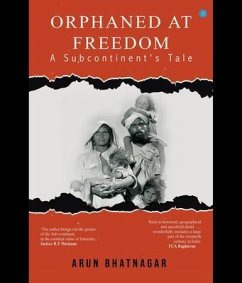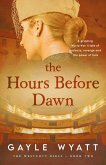In the middle of August, 1947, two nations - the Dominion of India and the Dominion of Pakistan - came into being through a Partition of the British Indian
Empire. The Princely States, which owed their existence to the British, acceded to either of the two Dominions.Jinnah, as Governor-General of Pakistan, and Nehru, as Prime Minister of India, took the oath of office swearing allegiance to George VI, who was still the King of both the Dominions but no longer the Rex Imperator or King-Emperor. The Dominions eventually emerged as the Republic of India in 1950 and the Islamic Republic of Pakistan in 1956. Twenty-five years on, in 1972, a third country - the People's Republic of Bangladesh - was born out of the liquidation of East Pakistan. A United India - if it had been preserved - may have been an equal,militarily and economically, of the People's Republic of China. Arun Bhatnagar's Book is an engaging and absorbing account of a Subcontinent that passed through the High Noon of Empire, saw unity dissolving into division and experienced euphoria and despair, progress and tragedy, victory and defeat. The narrative, during the years 1911-1999, traverses (by way of the life-story of an Indian member of the ICS, later a practicing Barrister and Politician) various dimensions of history, politics, economy, culture and administration. The Afterword conveys the reader into the twenty-first century when unfriendly neighbours are in alliance to thwart New Delhi's interests.
Empire. The Princely States, which owed their existence to the British, acceded to either of the two Dominions.Jinnah, as Governor-General of Pakistan, and Nehru, as Prime Minister of India, took the oath of office swearing allegiance to George VI, who was still the King of both the Dominions but no longer the Rex Imperator or King-Emperor. The Dominions eventually emerged as the Republic of India in 1950 and the Islamic Republic of Pakistan in 1956. Twenty-five years on, in 1972, a third country - the People's Republic of Bangladesh - was born out of the liquidation of East Pakistan. A United India - if it had been preserved - may have been an equal,militarily and economically, of the People's Republic of China. Arun Bhatnagar's Book is an engaging and absorbing account of a Subcontinent that passed through the High Noon of Empire, saw unity dissolving into division and experienced euphoria and despair, progress and tragedy, victory and defeat. The narrative, during the years 1911-1999, traverses (by way of the life-story of an Indian member of the ICS, later a practicing Barrister and Politician) various dimensions of history, politics, economy, culture and administration. The Afterword conveys the reader into the twenty-first century when unfriendly neighbours are in alliance to thwart New Delhi's interests.
Dieser Download kann aus rechtlichen Gründen nur mit Rechnungsadresse in A, D ausgeliefert werden.









